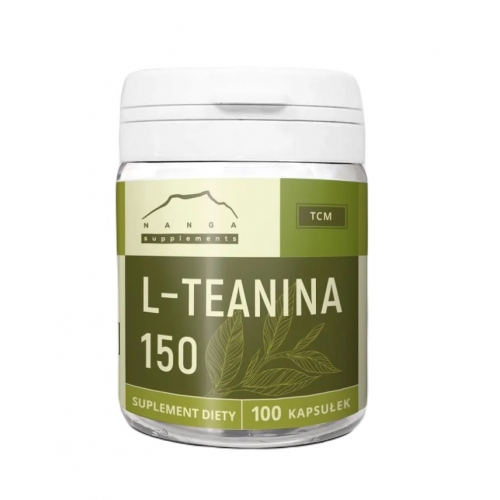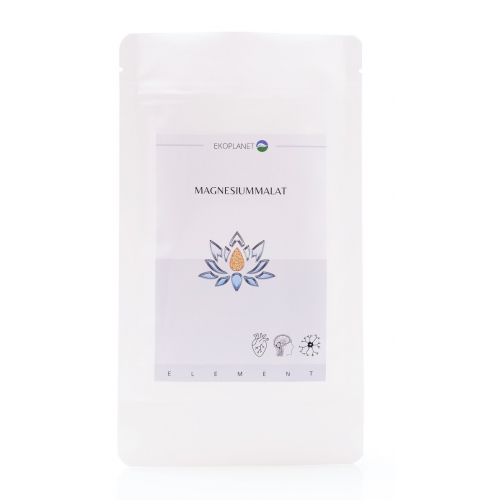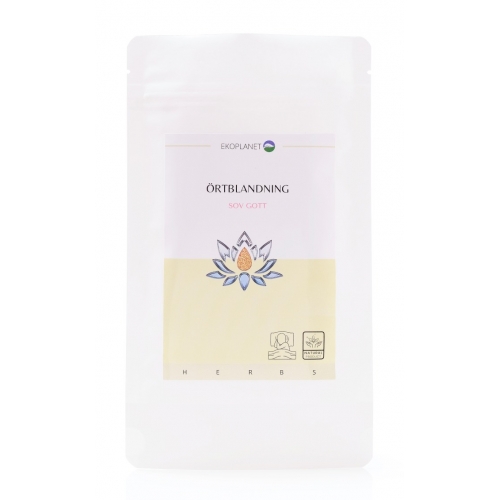Supplements for insomnia and what doesn't work.

Melatonin
Melatonin, i.e. the so-called "sleep hormone", is produced in our brain by the pineal gland. Its role is to regulate the rhythm of sleep and wakefulness. Melatonin is made from tryptophan and is gradually released in the evening to reach its highest concentration in our bloodstream between midnight and 3am. Its secretion depends mostly on the light intensity reaching our eyes, so it starts in the evening when the daylight decreases and ends when it gets brighter outside. Melatonin has been used as a medicine for sleep problems for more than a decade. The drug is becoming increasingly popular.
I think melatonin is worth recommending because it is a substance known to our body. Melatonin is not addictive, it does not burden the nervous system like stronger sleeping pills, it is safe and rarely causes side effects. Just keep in mind that if we decide to undergo melatonin treatment, it should be taken every day at the same time. (1)
L-theanine
L-theanine is a non-protein amino acid, that is, one that is not used by the body to build proteins. In nature, it occurs most abundantly in the leaves of the tea bush - Camellia sinensis, which is where its name comes from.
L-theanine has a broad effect on the nervous system. What sets it apart from other supplements is its ability to activate alpha waves in the brain. What does it mean? Alpha waves are produced in a state of relaxation, and this state promotes well-being and absorption of information. In such a state, it is also easier for us to control stress, anxiety and anger. We also find it easier to fall asleep.
Studies have not shown any significant effect of L-theanine on the speed of falling asleep or on the total sleep time, but it has been shown to significantly improve the quality of sleep by prolonging the SWS (slow wave sleep) phase, meaning that during the same sleep time we wake up feeling more rested. This is the result not only of the effect of L-theanine on the bioelectrical activity of the brain, but also of its ability to increase the level of the neurotransmitter GABA, which can increase by as much as 20% as a result of regular intake of L-theanine. (2,3,4).
Inositol
Inositol is a substance from the polyol group (the same that includes, for example, xylitol), which is produced naturally by our body and fulfills several important functions. It supports well-being by increasing serotonin levels, affects the GABAergic system and participates in the metabolism of glucose and female sex hormones. It is used in depression, anxiety and obsessive-compulsive disorder, insomnia and PCOS.
The effect of inositol on sleep is that it mimics the activity of the neurotransmitter GABA and also increases the sensitivity of GABA receptors to this neurotransmitter. This results in increased peace of mind, especially when used in the evening.
Studies involving humans have confirmed the beneficial effect of inositol on sleep quality. (5,6,7).
Magnesium
If we want to improve the quality of our sleep, we cannot forget magnesium!
Magnesium is one of the elements that regulate our nervous system. When we suffer from its deficiency, we are more irritable and susceptible to stress, it is easier for us to get irritated and it is more difficult to relax. Magnesium deficiency can also cause problems falling asleep and maintaining healthy sleep.
Magnesium is responsible for proper conduction of nerve impulses and muscle relaxation. Gives renewal of mind and body. It affects our emotions and helps us stay calm and prepared in stressful situations. Taking extra magnesium in the evening deepens relaxation and can help you fall asleep, especially when combined with other sedatives. Magnesium can be combined with, for example, tryptophan, renfana or L-theanine.
A study involving elderly people suffering from insomnia showed that dietary supplementation with an additional dose of magnesium resulted in an increase in total sleep time, improved sleep efficiency, an increase in the level of endogenous melatonin, and a shortened time to fall asleep (8).
That's almost all! Finally, a few words about which supplements are used, marketed and added to supplements, but which do not work.
What is not working?
- Inorganic forms of magnesium, such as magnesium carbonate or magnesium oxide, are practically not absorbed from the digestive tract. Other inorganic forms of magnesium, such as chloride and sulfate, are well absorbed, but only through the skin, for example when dissolved in a bath.
- Alcohol ;) I mentioned it at the beginning, but I'll add it again - although alcohol can help you fall asleep faster, it definitely reduces the quality of your sleep. The reason is simple - after drinking alcohol must remove alcohol from the body and cannot fully recover.
- Herbal teas for sleep in bags - ground herbs are almost free of essential oils, which evaporate during grinding. Due to the fact that active substances with a sleep-inducing effect are often found in essential oils from plants (eg lemon balm, lavender, catnip), it is unlikely to produce any noticeable effects. (9,10).
References:
1. Så funkar melatonin https://www.habilitering.se/fakta-och-rad/temasidor/somn/sa-funkar-melatonin/
2.L-teanina | Camellia sinensis.https://neuroexpert.org/wiki/l-teanina-camellia-sinensis/
3.L-theanine partially counteracts caffeine-induced sleep disturbances in rats. https://pubmed.ncbi.nlm.nih.gov/22285321/
4.The neuropharmacology of L-theanine (N-ethyl-L-glutamine): a possible neuroprotective and cognitive enhancing agent. https://pubmed.ncbi.nlm.nih.gov/17182482/
5.Inositol. https://en.wikipedia.org/wiki/Inositol
6.Quiet Your Thoughts and Sleep Better With Inositol. https://myhealthysleep.com/blog/f/quiet-your-thoughts-and-sleep-better-with-inositol
7.The impact of myo-inositol supplementation on sleep quality in pregnant women: a randomized, double-blind, placebo-controlled study. https://pubmed.ncbi.nlm.nih.gov/32933356/
8.The effect of magnesium supplementation on primary insomnia in elderly: A double-blind placebo-controlled clinical trial. https://pubmed.ncbi.nlm.nih.gov/23853635/
9.Jak alkohol wpływa na sen? https://terapiabezsennosci.pl/jak-alkohol-wplywa-na-sen/
10.Dlaczego melisa rzadko działa uspokajająco? https://rozanski.li/3821/dlaczego-melisa-rzadko-dziala-uspokajajaco/






Leave a comment